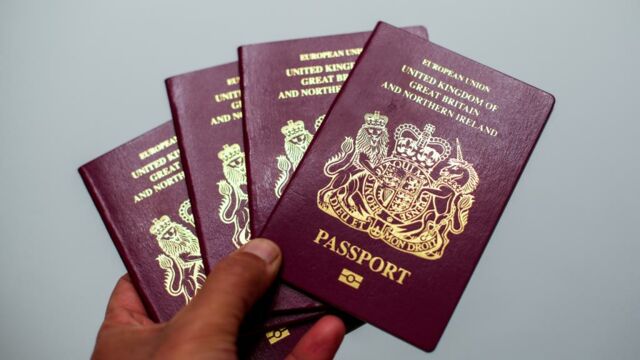UK: Supreme Court rules out gender-neutral passports

UK ruled out the option of gender neutral passports in the country. Activist Christie Elan-Cane fought on the grounds of passports violating human rights.
A British activist lost a legal challenge against the government's policy of not granting gender-neutral passports at the UK's Supreme Court on Wednesday.
Discover our latest podcast
The issue was taken to the highest court by activist Christie Elan-Cane, who spoke up for the LGBTQ+ community and stated that the necessity for passport applicants to identify whether they are male or female violates human rights legislation.
More under this adMore under this adNo option ‘X’
If the Liberal Democrats would win, British passports would include a 'X' option for individuals who identify as gender-neutral.
Elan-Cane, who does not identify as male or female, argued that the passport application procedure in the United Kingdom is ‘inherently discriminatory.’
More under this adMore under this adCane has spent 25 years advocating for the legal and social recognition of non-binary people in the UK, believes there should be an option for candidates who are neither absolutely female nor male.
Supreme Court President Robert Reed said:
It is therefore the gender recognized for legal purposes and recorded in those documents which is relevant.More under this adMore under this ad
The Supreme Court unanimously dismissed the case, stating that the form might be used to establish a person's identification by comparing it to other official papers; which includes birth, adoption, or gender recognition certificates.
Case adjourned
In acknowledgement of the rights of gender non-conforming individuals, certain nations, such as the United States, Canada, and Denmark, offer or plan to issue passports with non-binary gender markings.
More under this adMore under this adThe United Kingdom was ‘on the wrong side of history,’ according to Elan-Cane. For the time being, the case has been adjourned in the UK and the matter will be taken to the European Court of Human Rights in Strasbourg, France.
‘This is not the end,’ the campaigner wrote on Twitter.